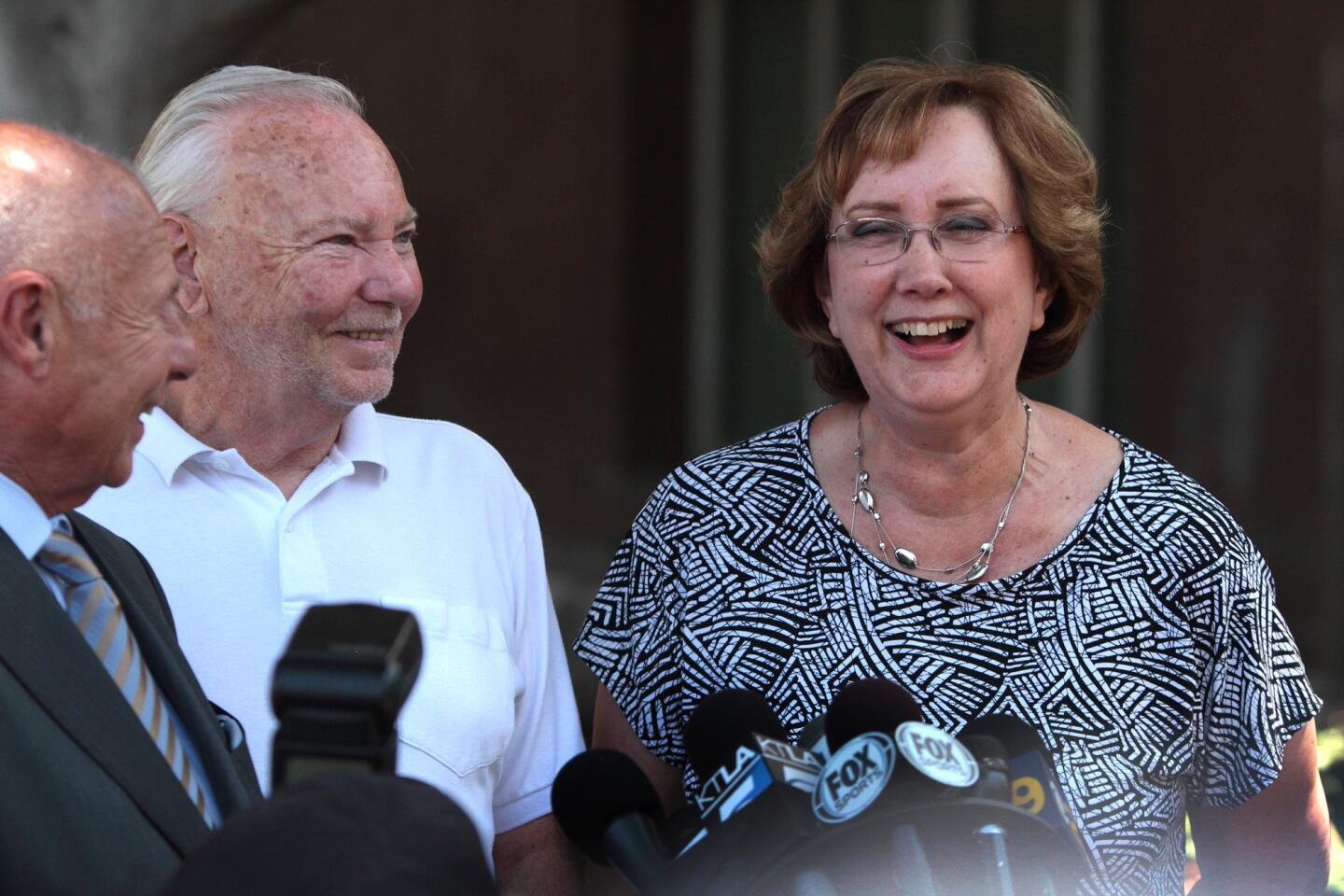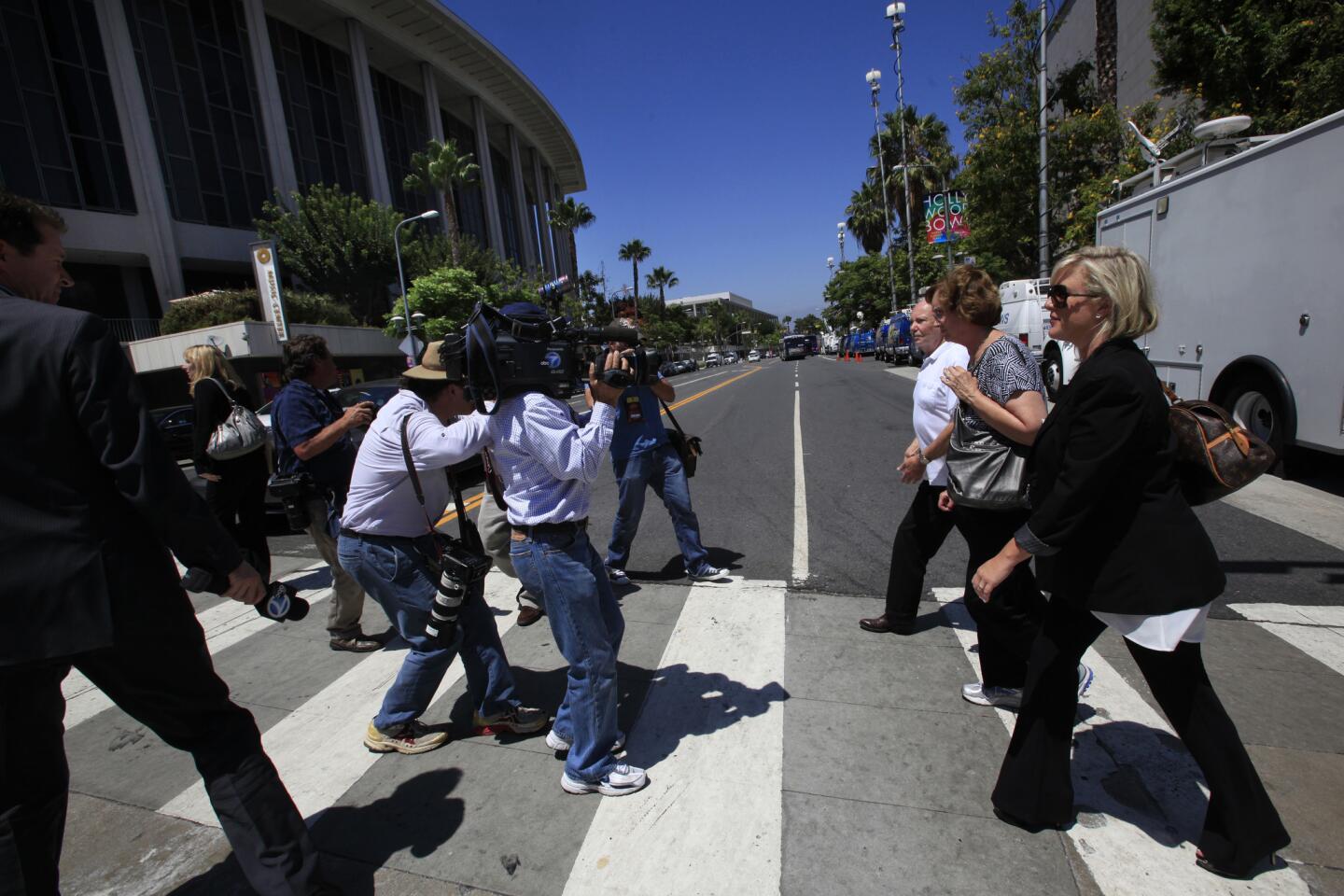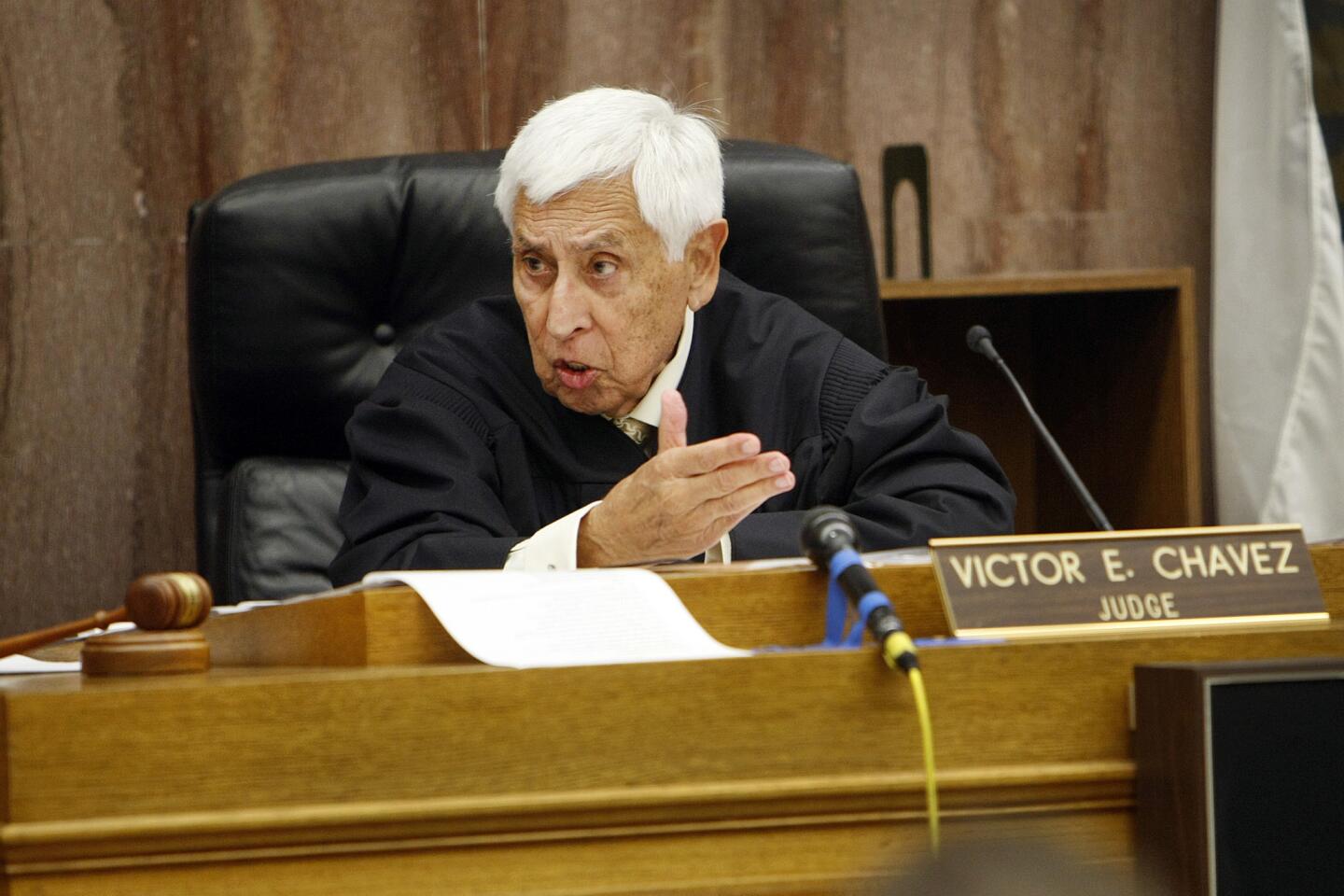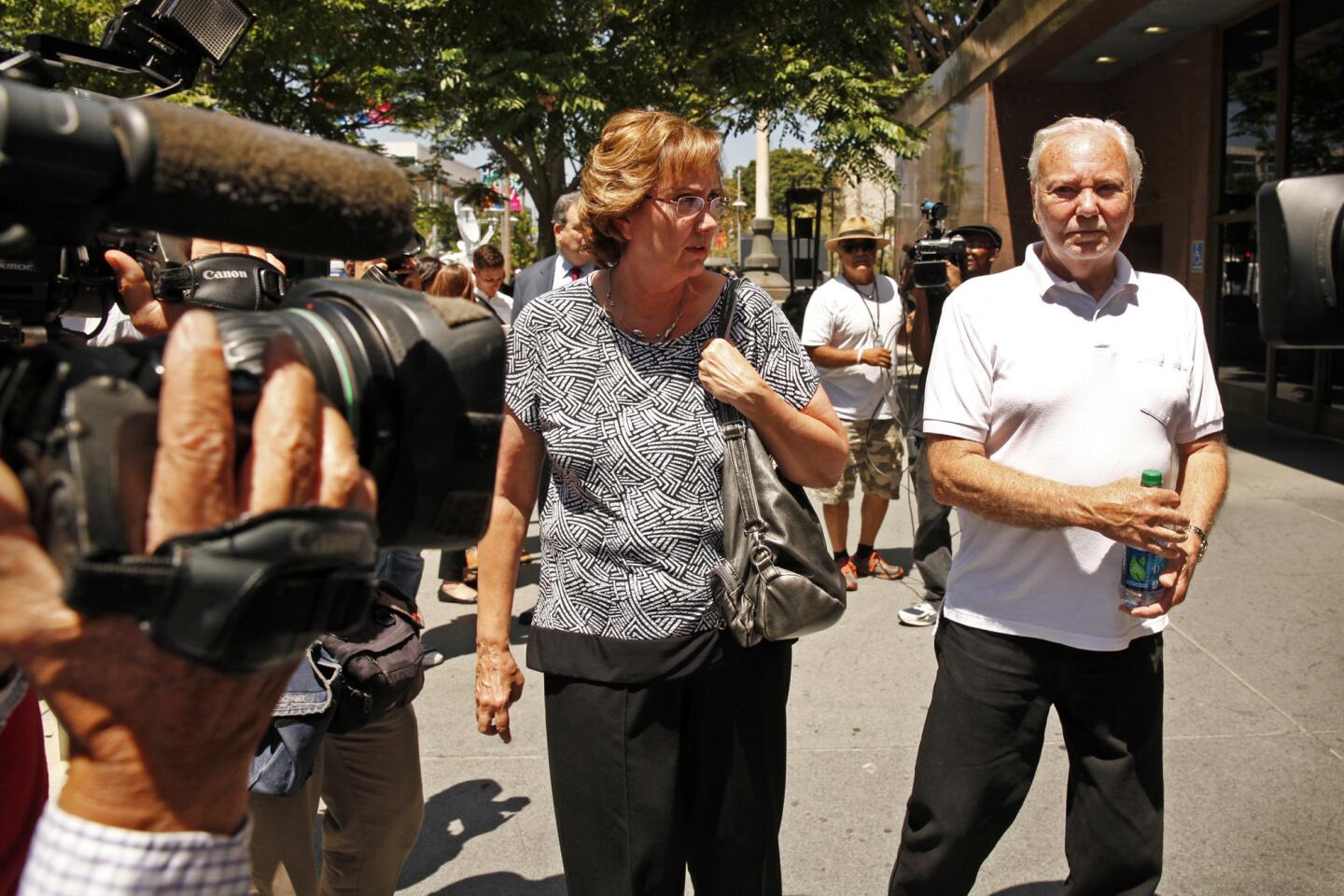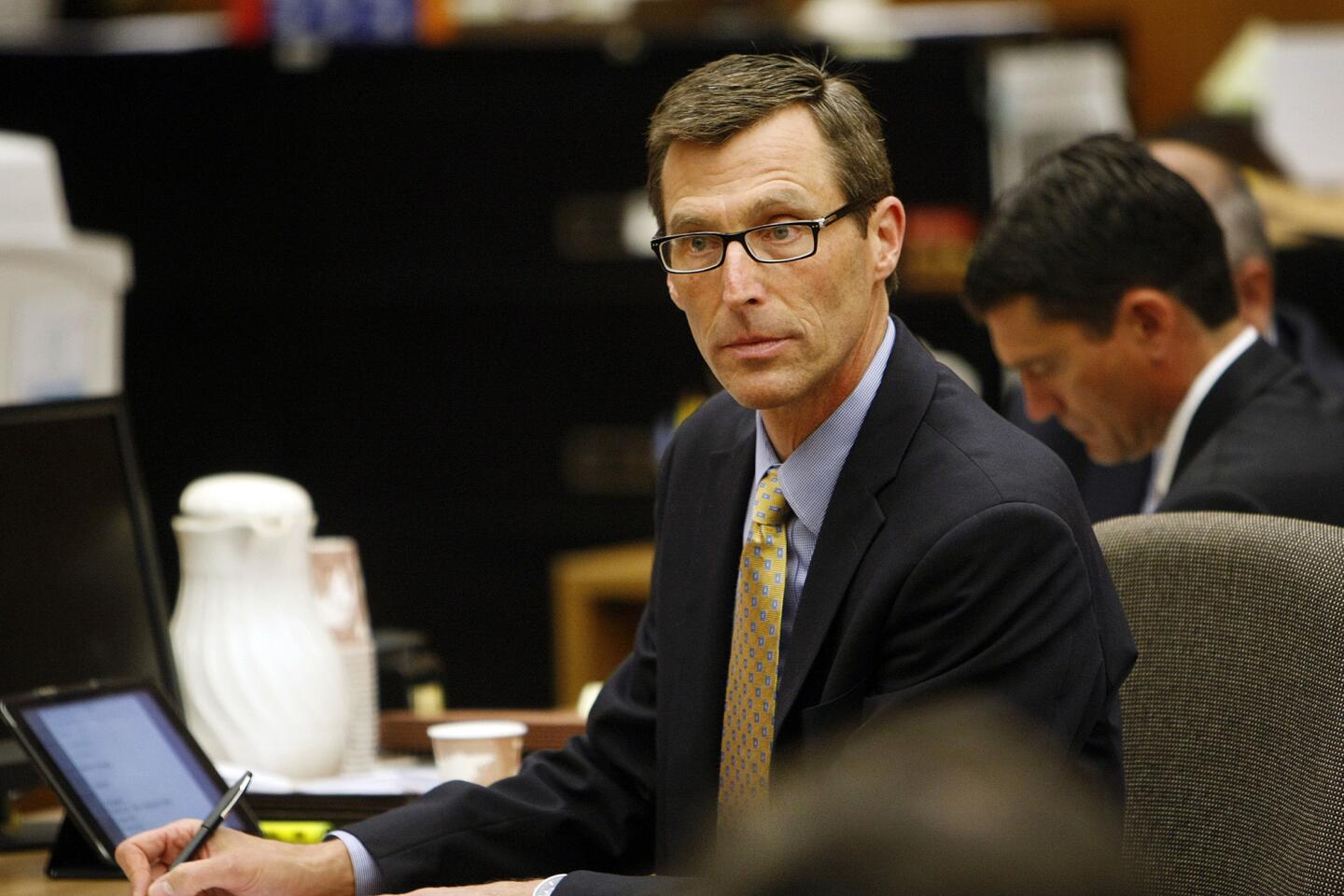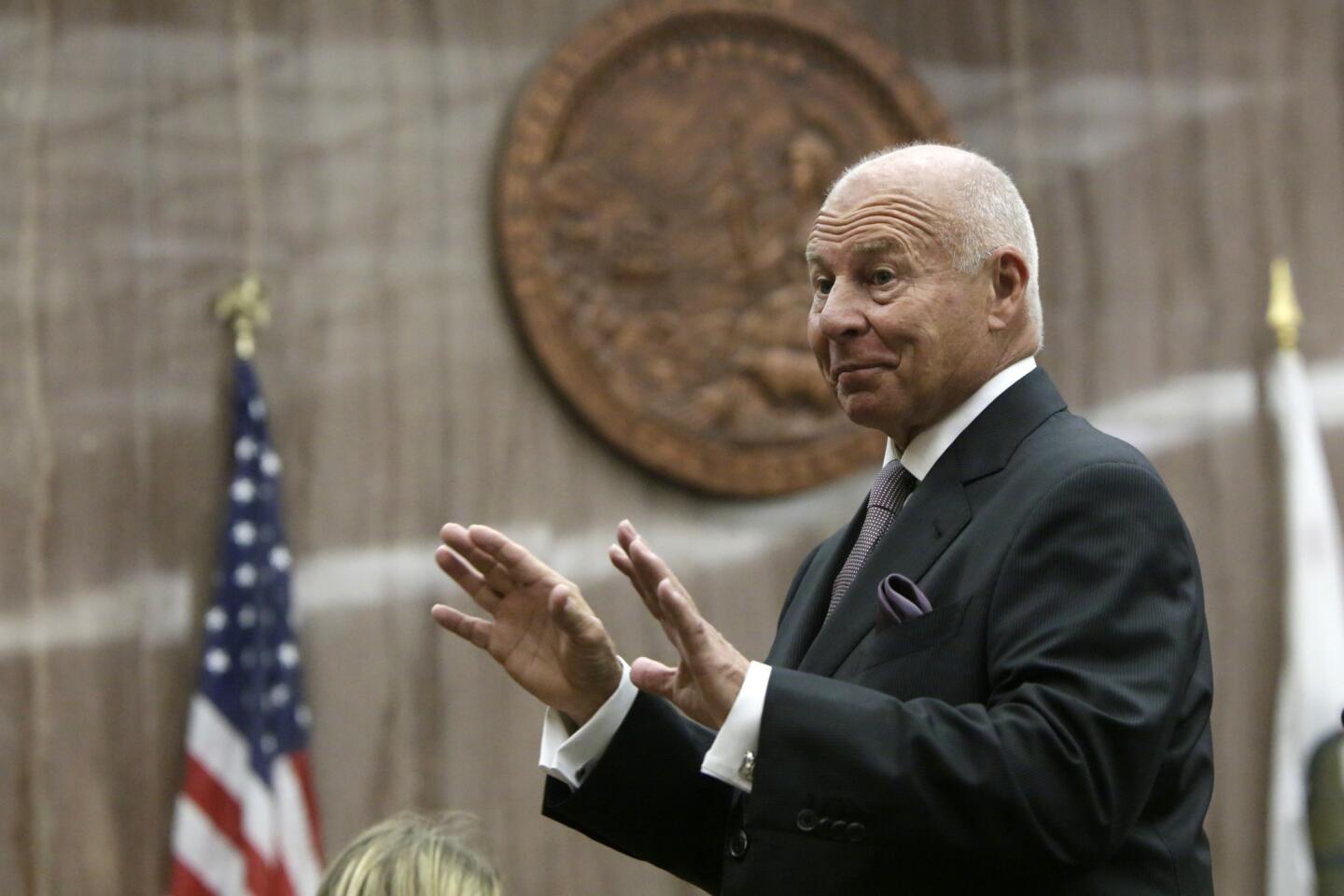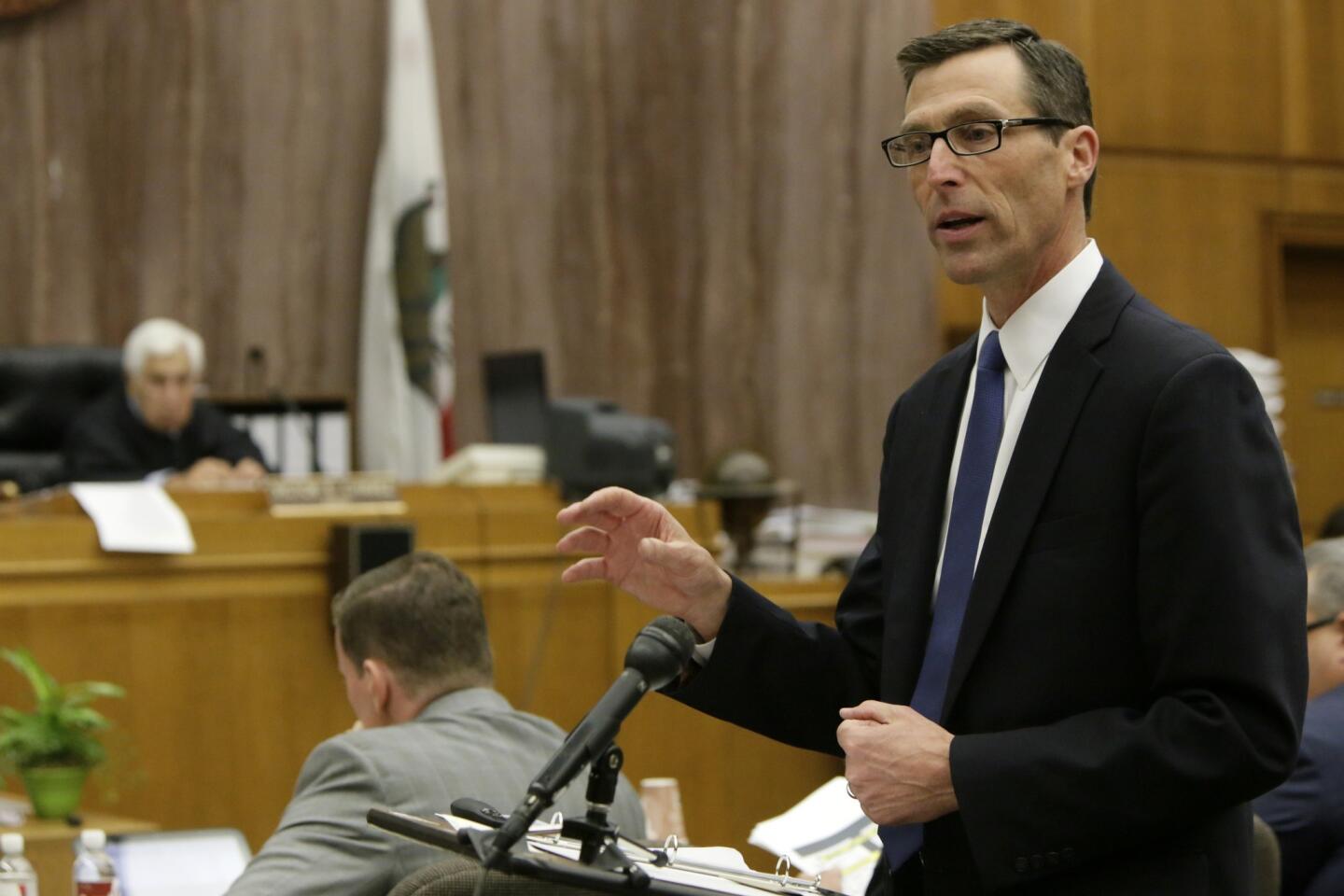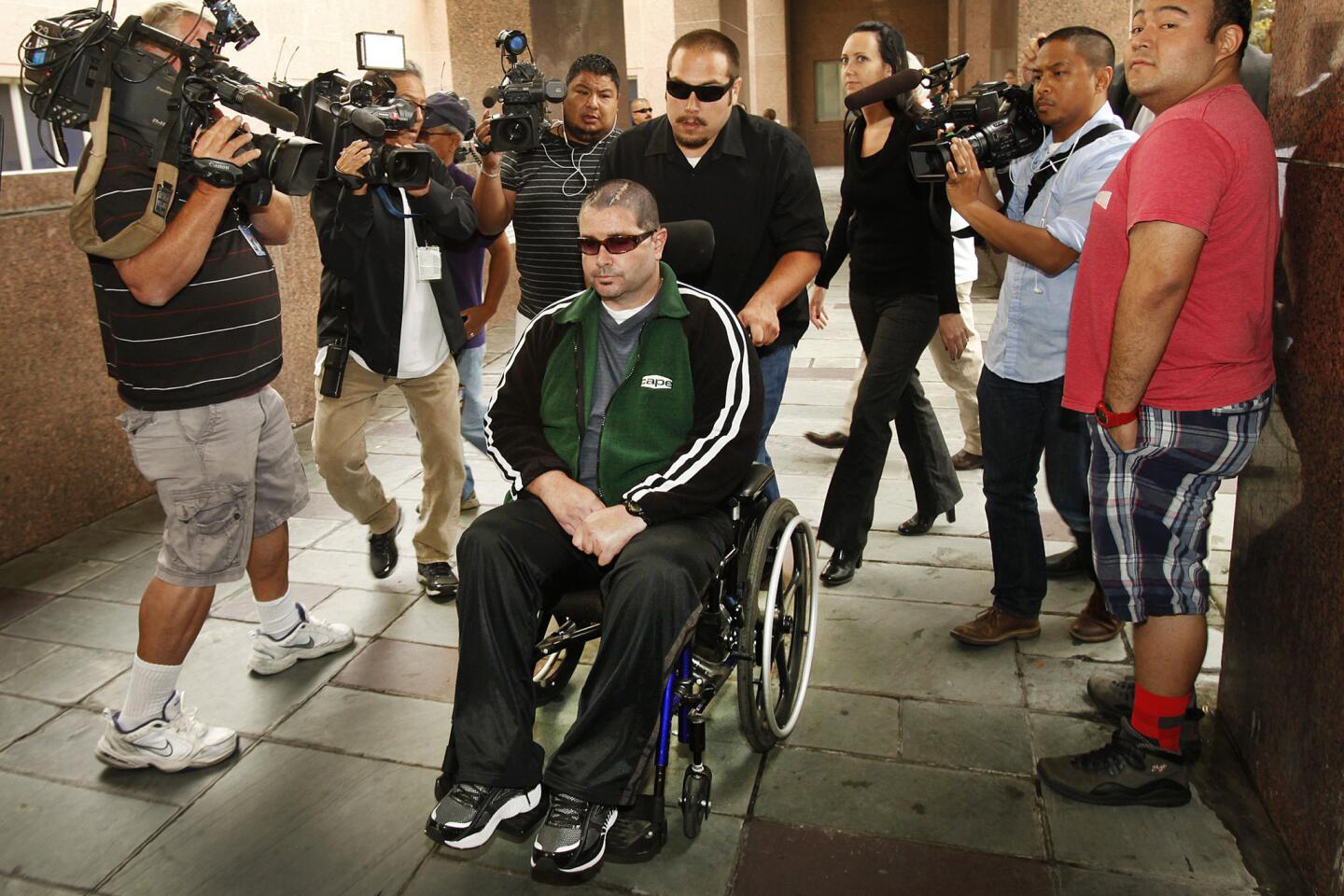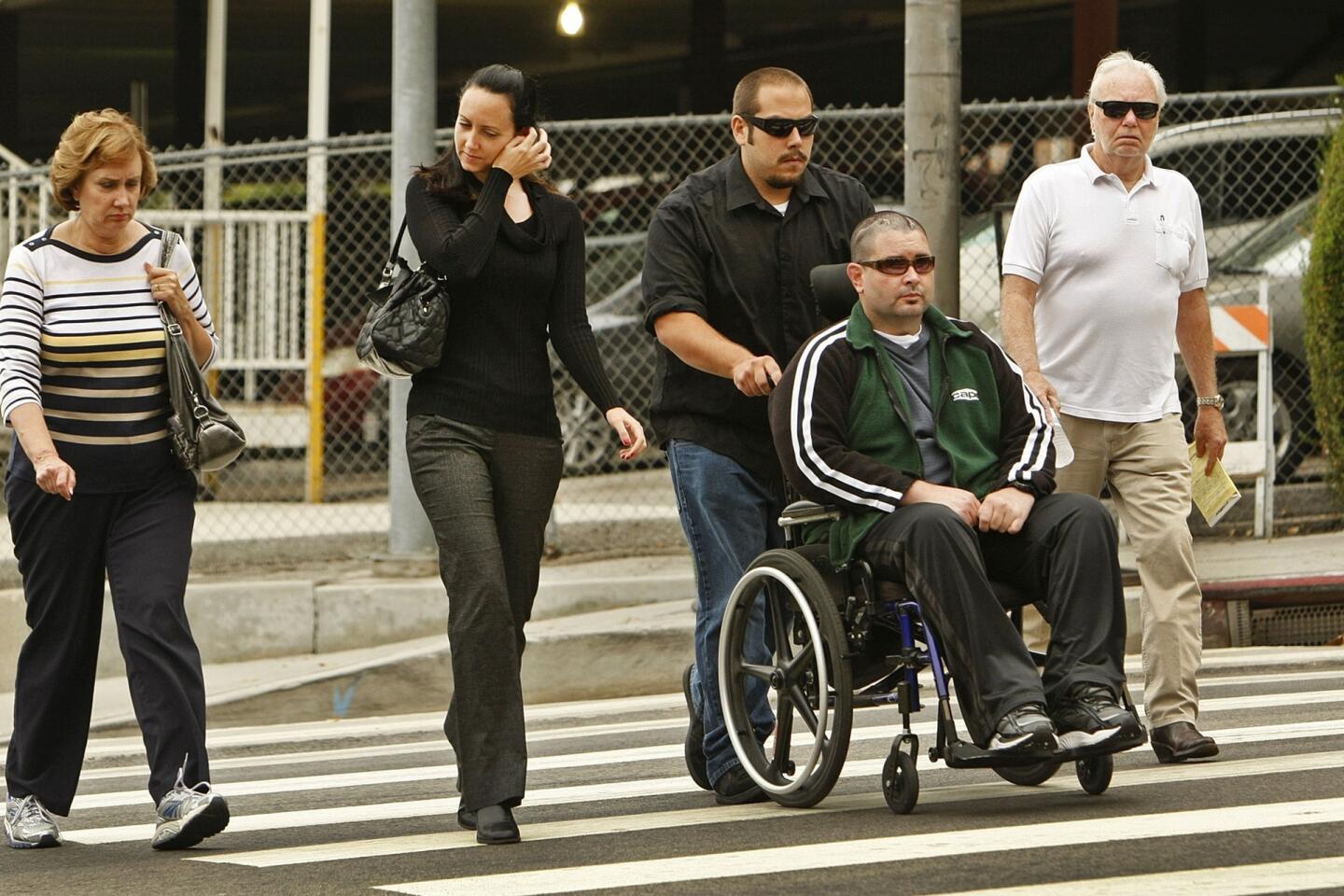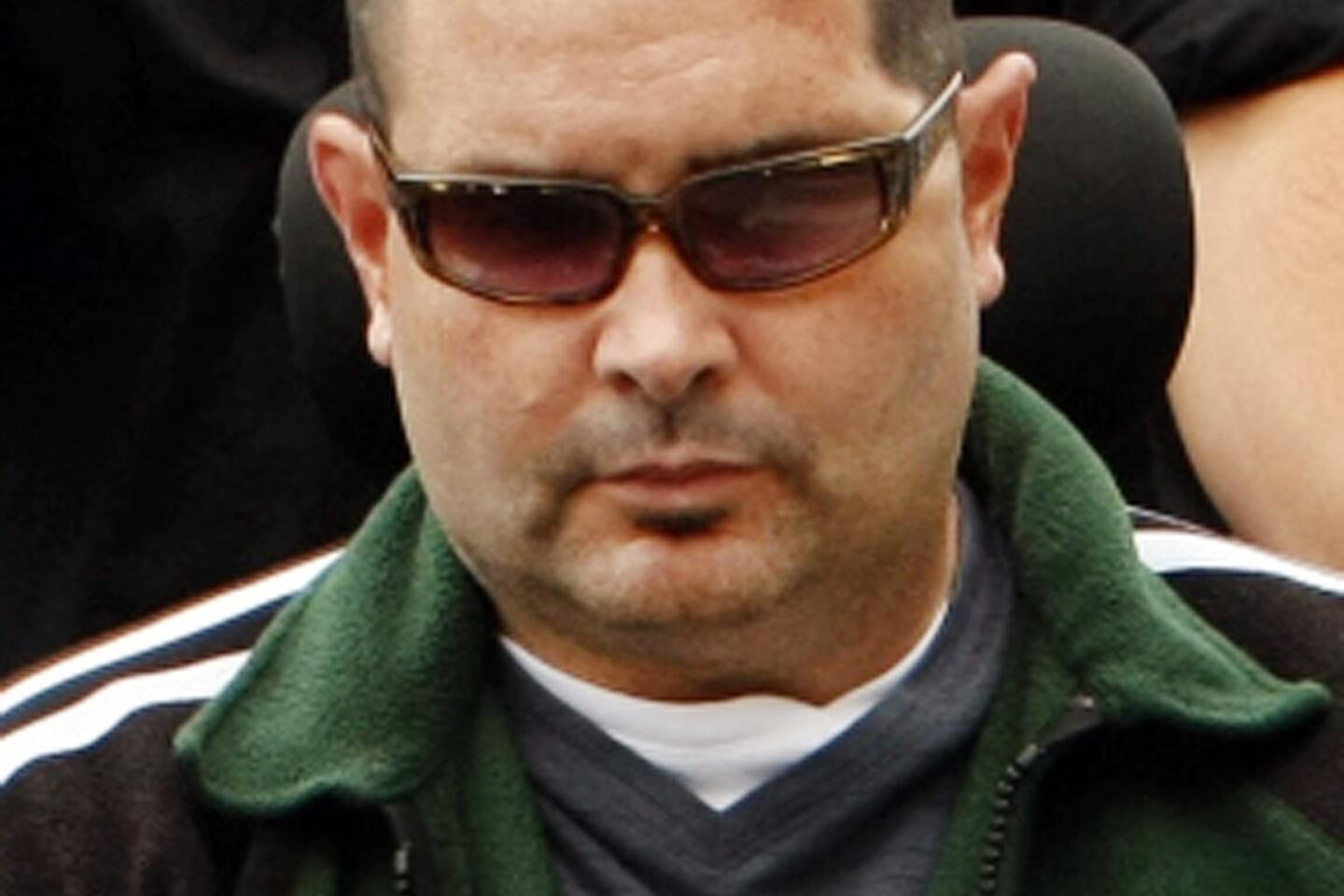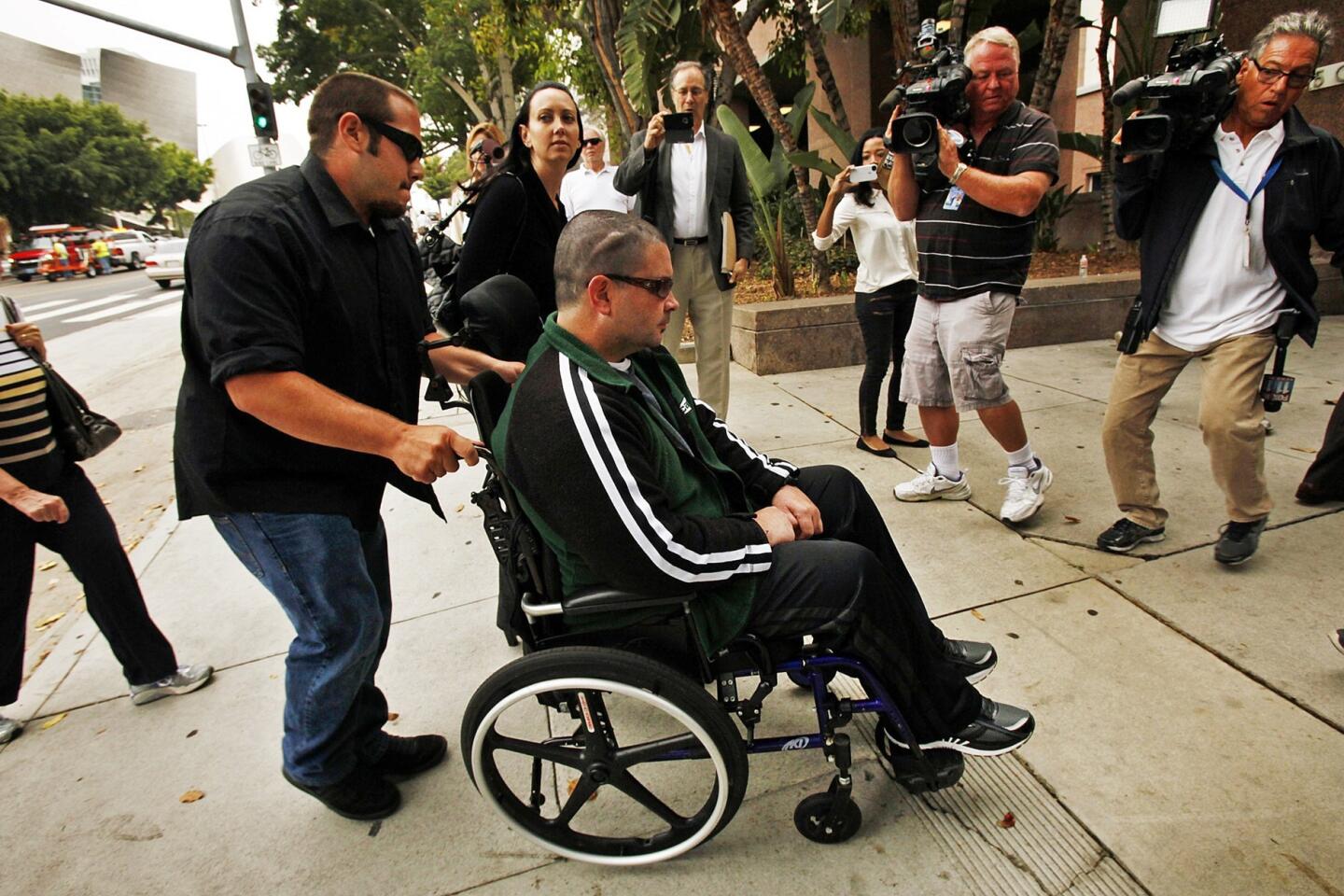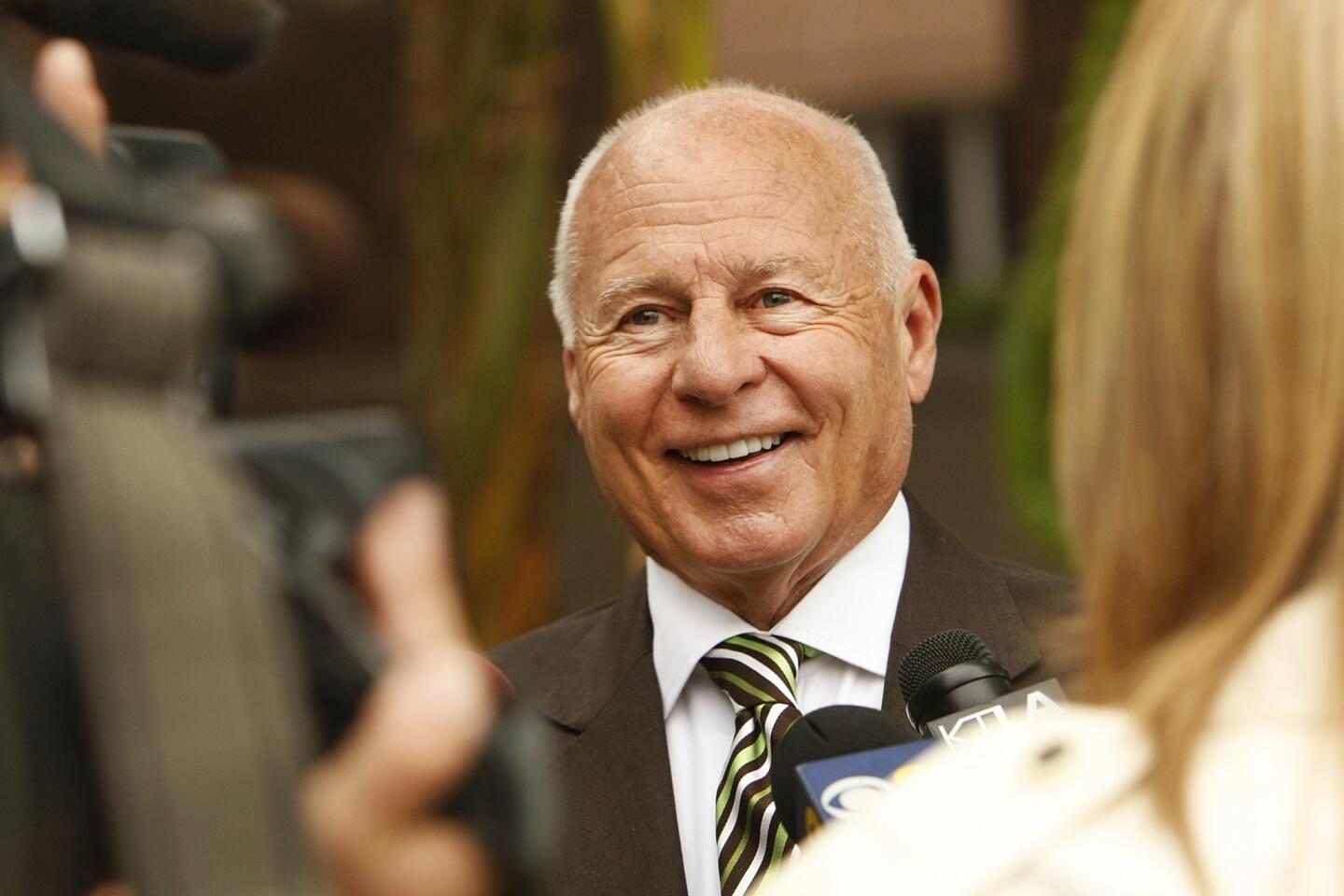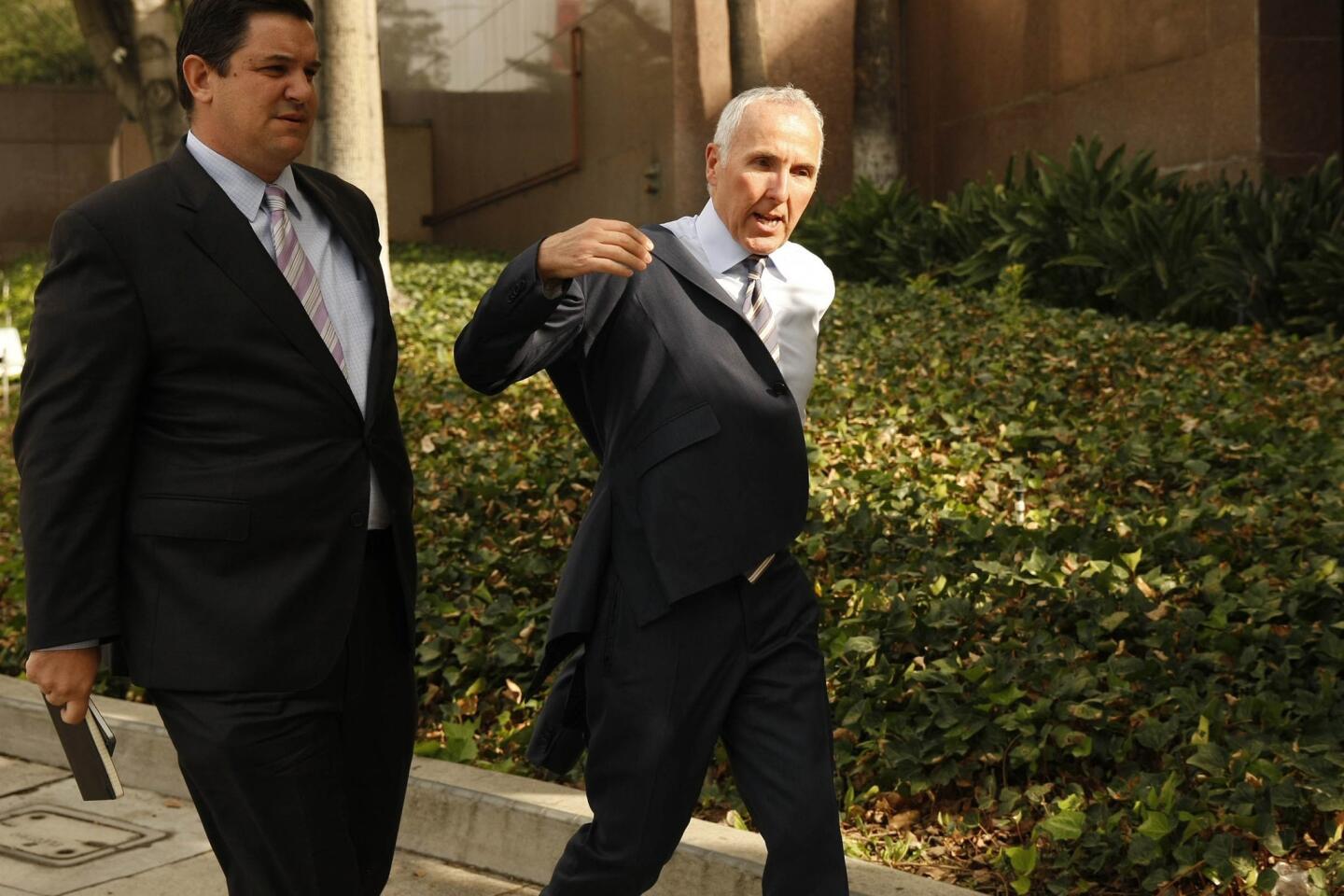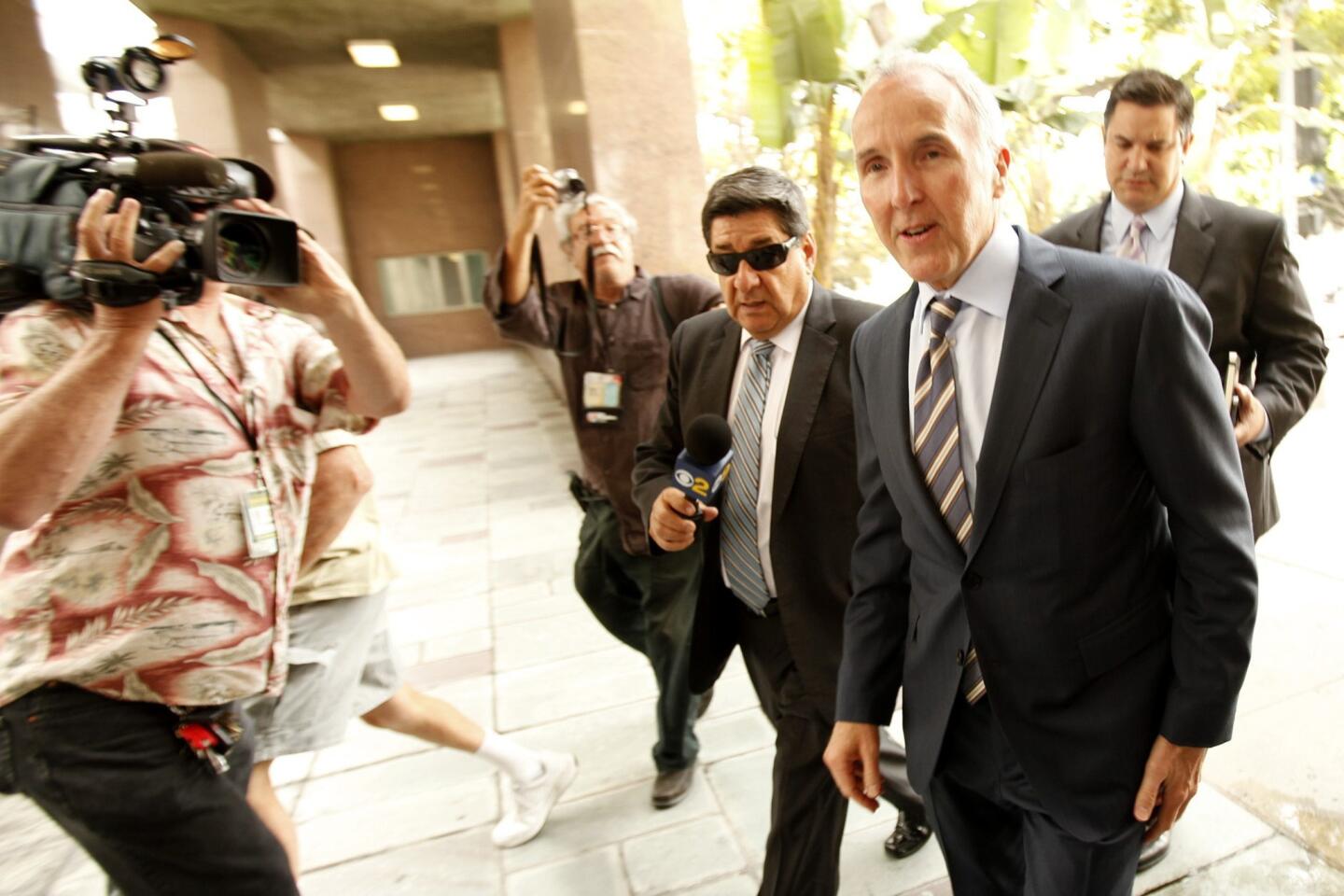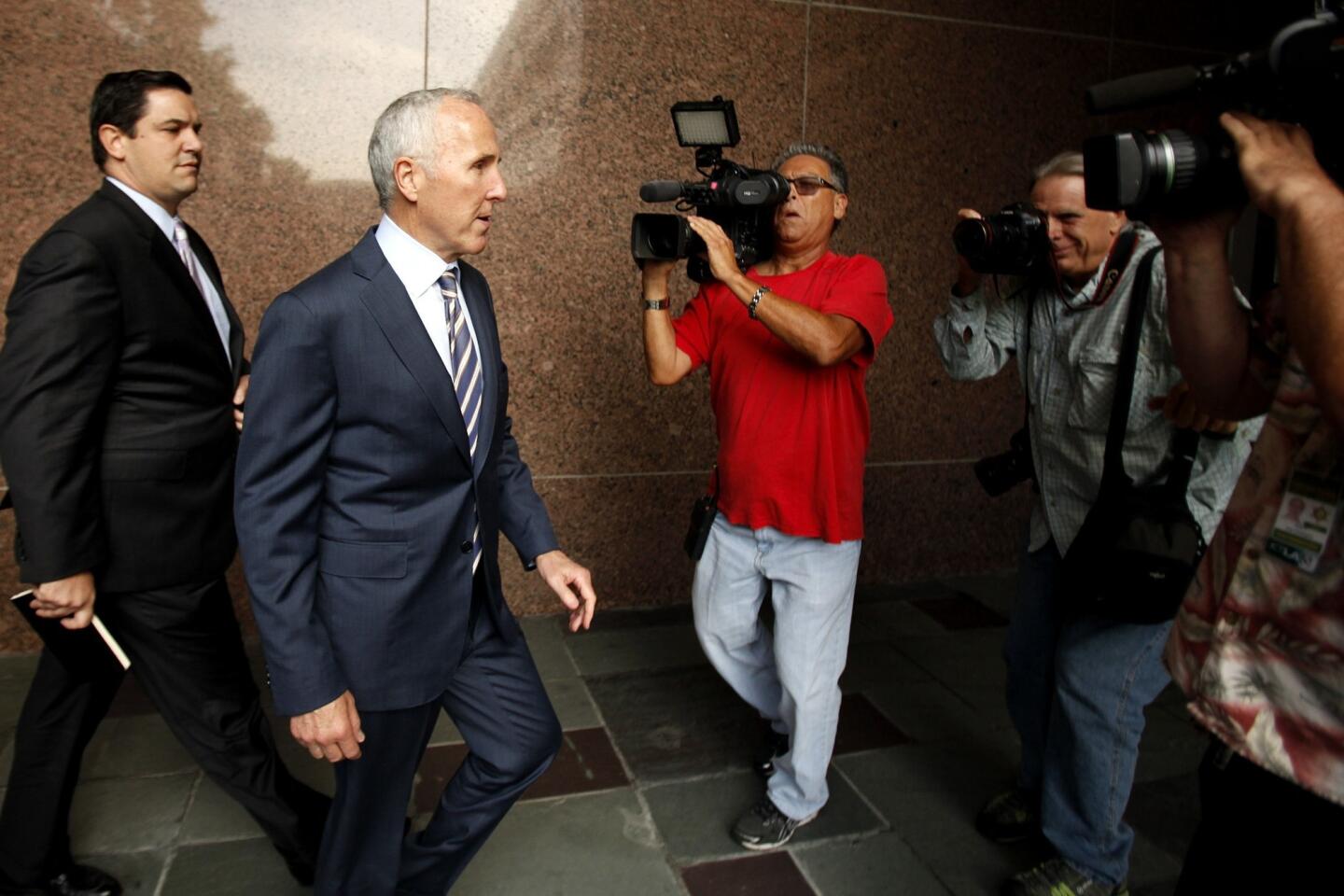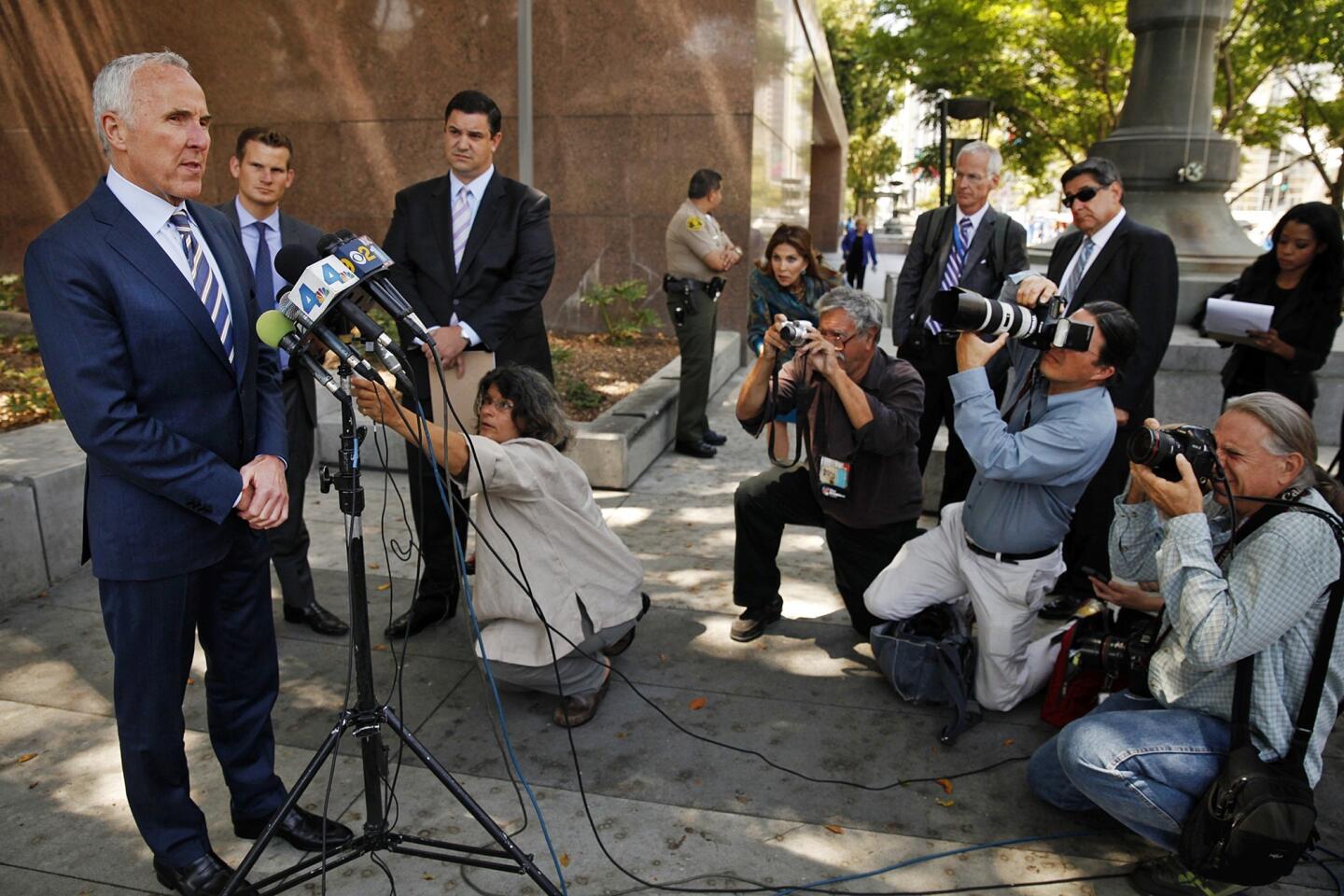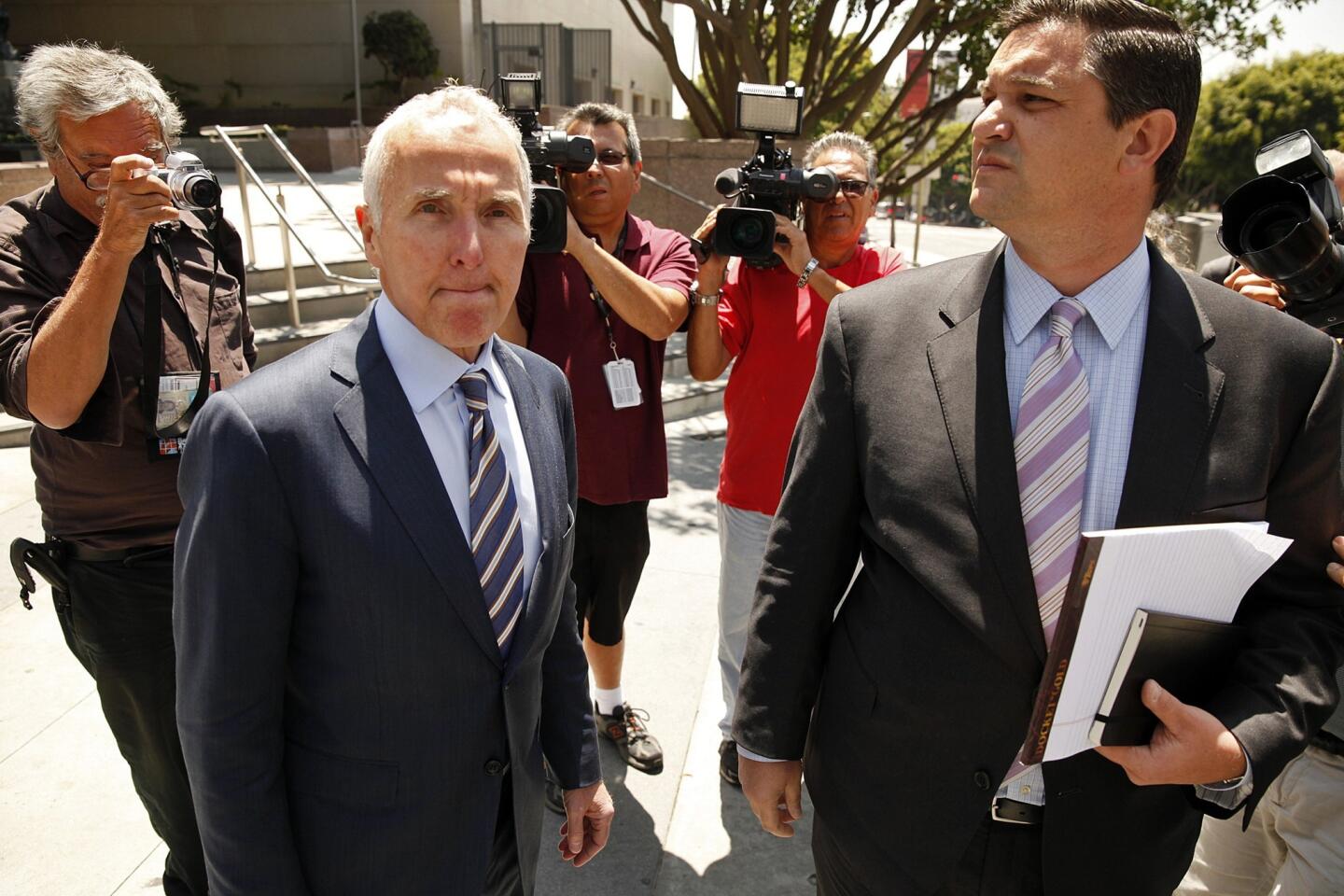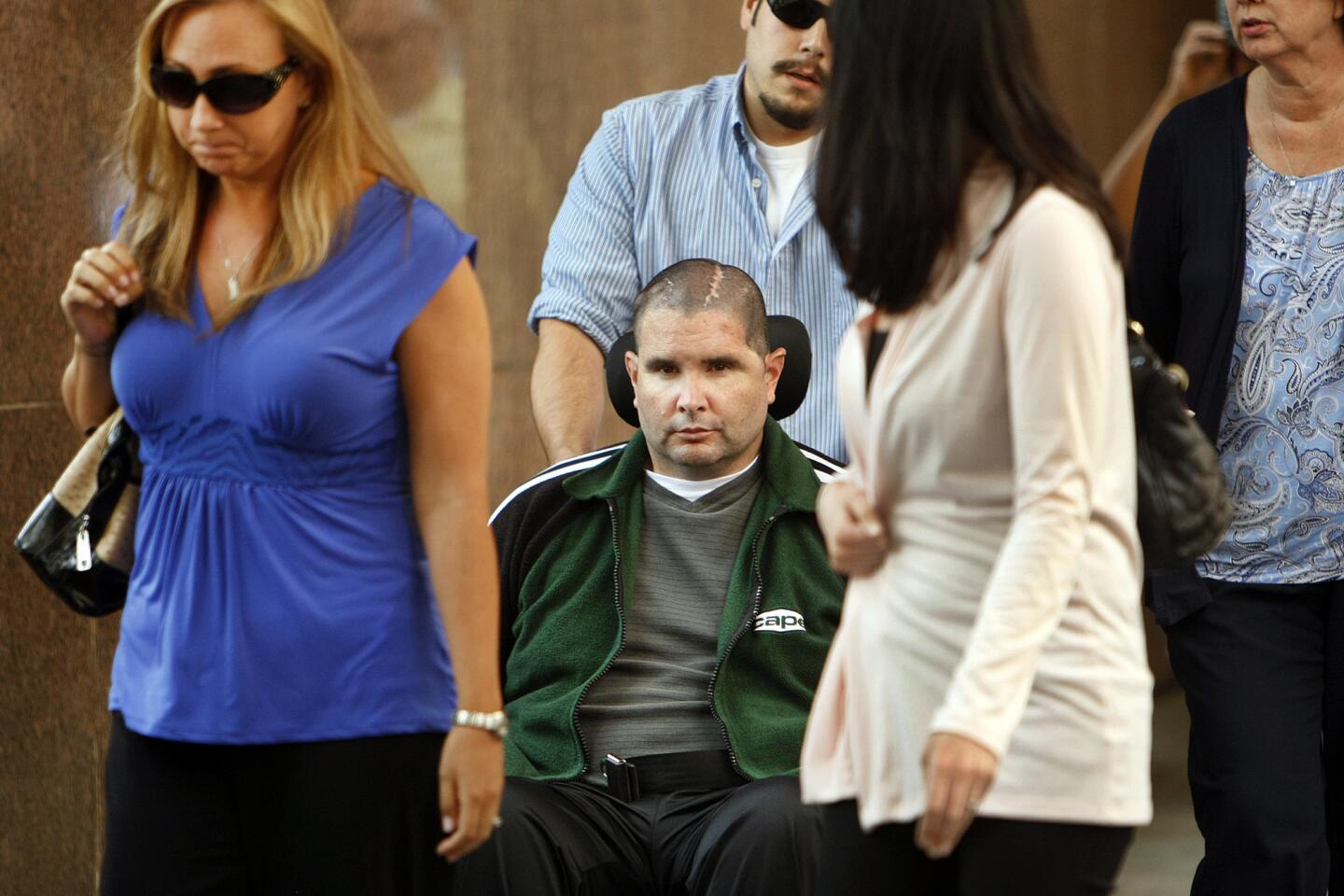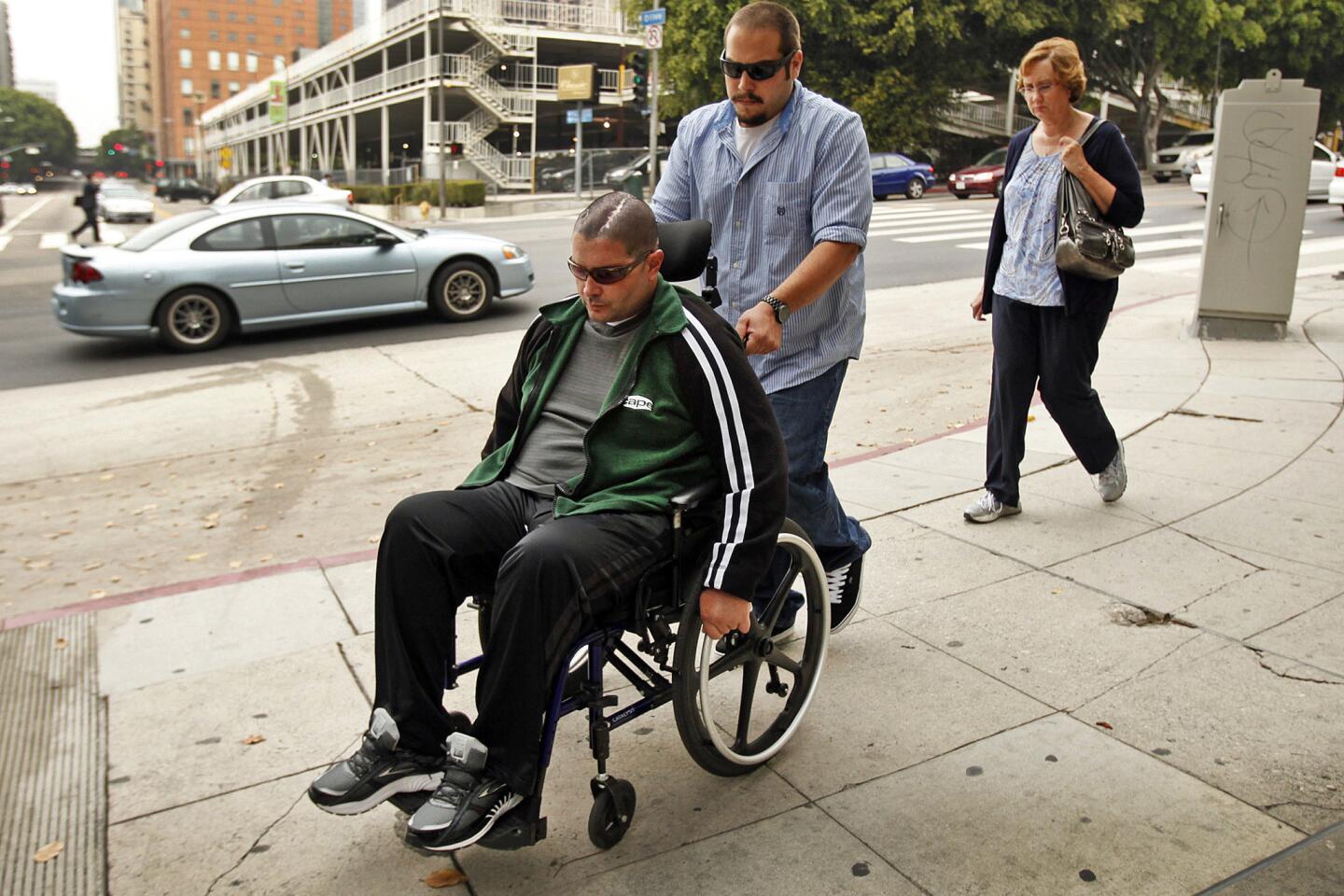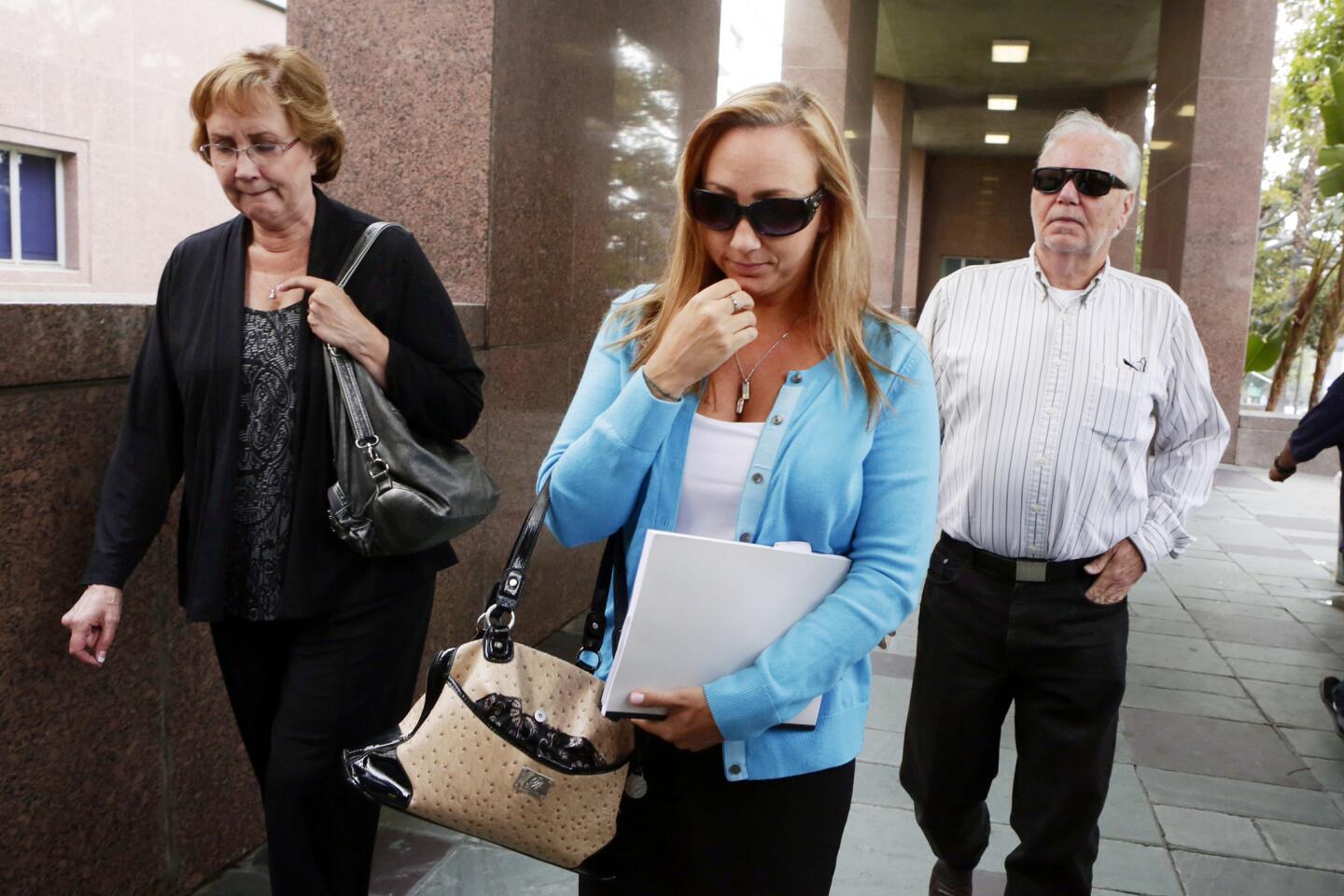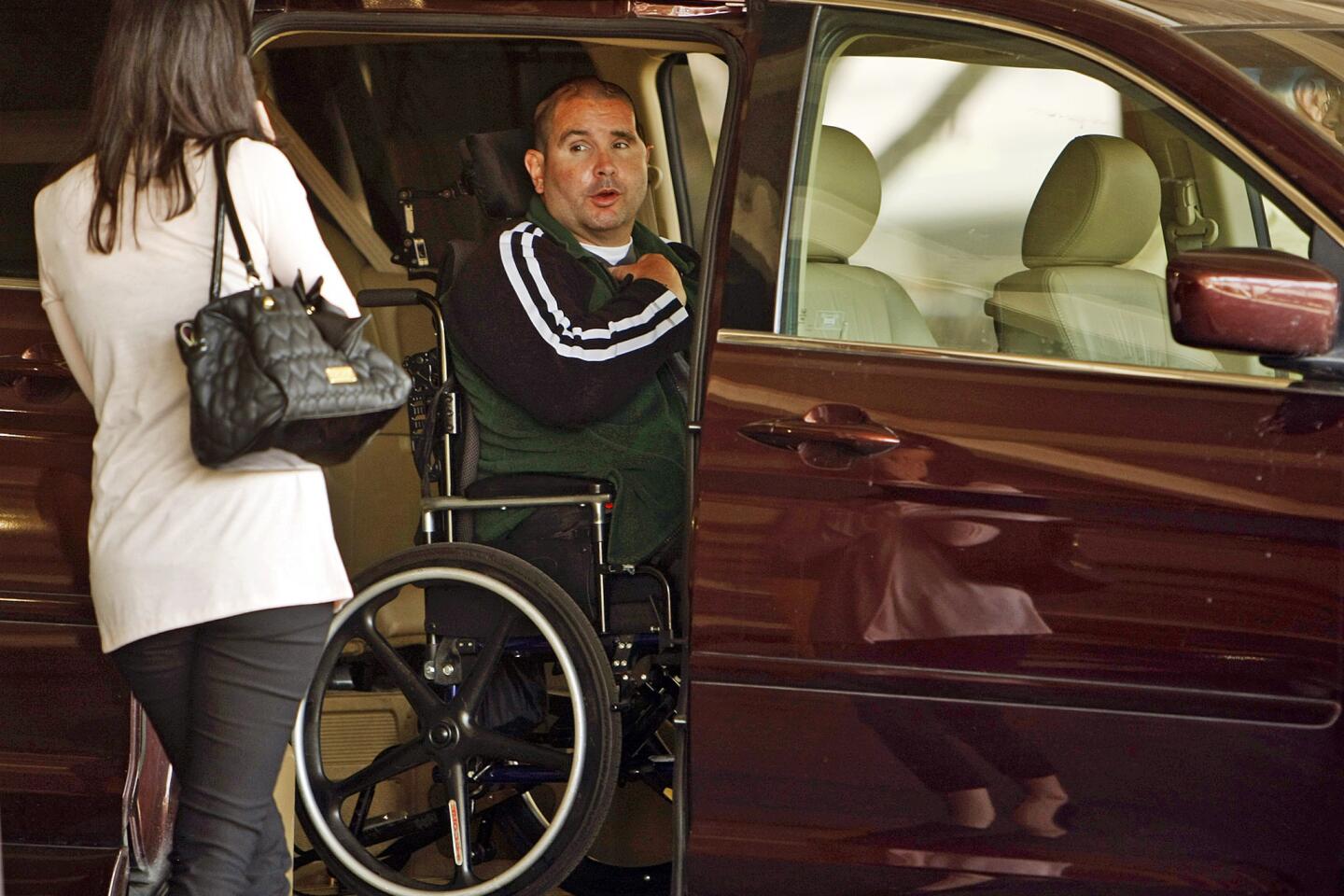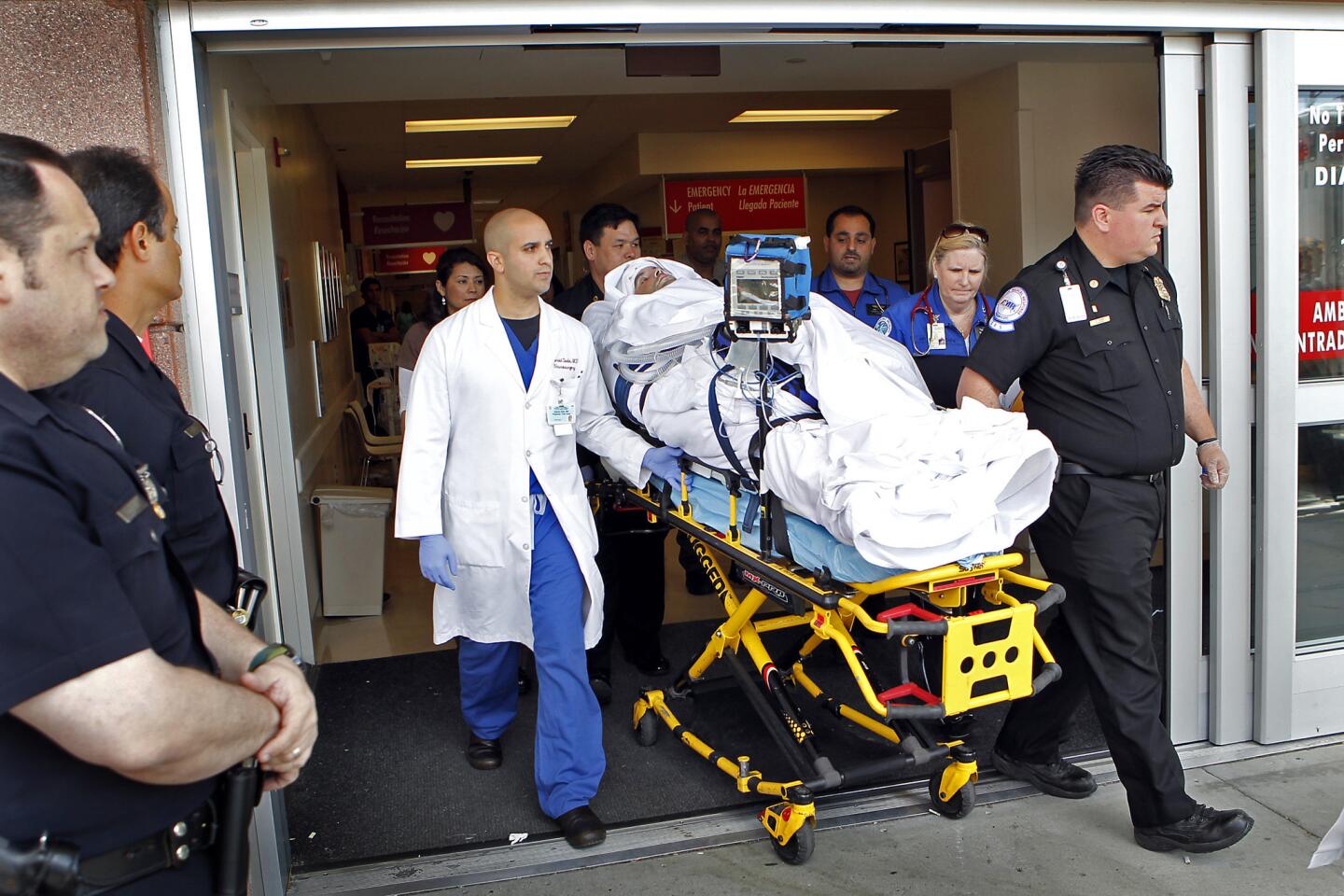Dodgers likely to pay about $13.9 million in Bryan Stow verdict
The Los Angeles Dodgers are partly liable for the injuries Giants fan Bryan Stow sustained in an attack at the Dodgers Stadium parking lot in 2011, a jury found Wednesday.
The jury said the team must pay millions to cover Stow’s medical bills and other expenses.
The two men who attacked Stow, Louie Sanchez and Marvin Norwood, were also ordered to pay part of the legal payout, which totaled nearly $18 million.
The former owner of the team, Frank McCourt, was not found liable.
Of the total payout, the jury determined the Dodgers shared 25% of the liability, while Sanchez and Norwood each were responsible for 37.5%. The money was for a mix of lost wages, past and future medical expenses and for mental and physical suffering.
Juror Alex Valdez said he actually voted that McCourt be held responsible.
“I thought Mr. McCourt could’ve done something more,” he said. Valdez said he also would have liked to give an additional $10 million to the family, but that the jury relied on the defense’s figures when it came to breaking down Stow’s medical costs. The deadlock was 8 to 4, Valdez said, until a probate attorney reviewed the evidence further and changed her vote.
Another juror, Carlos Munoz, said he believed the Dodgers did have a security plan in place, “but somewhere along the line that plan broke down.”
He said he was emotionally affected by testimony about Stow’s limited physical and cognitive disabilities. “It would pull at anybody’s heartstrings, but we had to go by the evidence,” Munoz said.
Based on the verdict, the Dodgers will have to pay about $13.9 million of the verdict, said team attorney Dana Fox. The team is on the hook to shoulder all of Stow’s past and future medical expenses and lost earnings, but 25% of the sum is what jurors found Stow should receive for his pain and suffering.
Fox said the team had not yet decided whether to appeal, saying the team would “wait and consider the options.”
Stow, a Santa Cruz paramedic and the father of two young children, was beaten unconscious and left with such profound injuries that his attorneys said he will require round-the-clock medical assistance for the remainder of his life.
The suit said Stow and his friends had been taunted throughout the game and then were blindsided from behind as they walked across a dimly illuminated parking lot, all of which went unnoticed by security.
Stow’s attorney argued that McCourt had opted to go cheap on security, instead funneling money into his own lavish lifestyle.
“The Dodgers’ own pocketbook prevented them from providing proper security,” said attorney Thomas Girardi, pointing out that the team’s security budget amounted to about 62 cents per fan in attendance.
But the Dodgers’ attorney said the opposite was true, that the team had stepped up security and provided the most robust level of protection of any opening day game in team history. Stow and his two attackers were ultimately responsible for his injuries, Dana Fox argued.
Fox said Stow and his family should have sought damages from Sanchez and Norwood, the two men now serving time for the assault, rather than the Dodgers.
Fox said it would be “heartless” not to feel compassion for Stow and his family, but asked jurors to consider Stow’s own responsibility, noting that his blood-alcohol level was nearly twice the legal limit for driving, and that a witness testified that he saw Stow raising his arms and yelling something in the direction of Sanchez and Norwood.
“There were things that Mr. Stow did that put these events into action. Don’t get yourself this drunk and then say, ‘I share no responsibility for what happened.’ ”
Stow’s attorneys asked for about $50 million in damages, including $30 million for past and future medical costs, plus punitive damages for the team’s negligence. The team’s lawyers countered with estimates that Stow’s medical costs would amount to between $6.5 million and $11 million.
More to Read
Sign up for Essential California
The most important California stories and recommendations in your inbox every morning.
You may occasionally receive promotional content from the Los Angeles Times.

